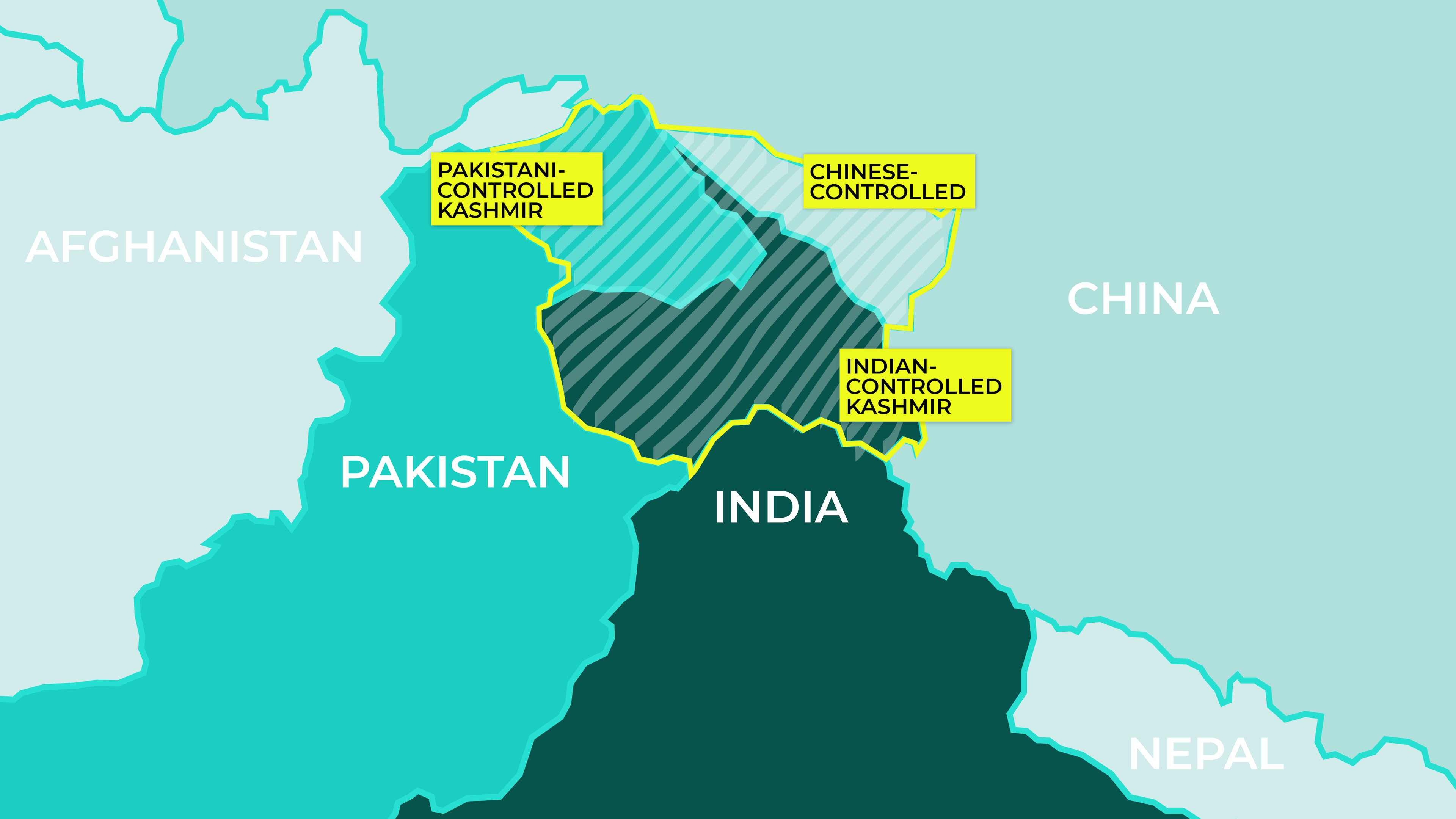Recent tension between India and Pakistan reminded the world that North Korea isn’t the only nuclear threat out there.

The Story
In recent weeks, India and Pakistan’s relationship became more contentious than it’s been in decades.
The Background
India used to be a British colony. In 1947, after years of campaigning against British rule, India gained independence and was separated into two countries: India – which was mostly Hindu – and Pakistan – which was mostly Muslim. Dividing the countries across religious lines went just about as well as you’d expect.
So...not well.
Correct. Fighting broke out as masses of Muslims and Hindus started migrating in between the two new countries. Kashmir – a region in the Himalayas that shares borders with both India and Pakistan – was caught in the middle. The two countries have been fighting for control of Kashmir ever since.

Where does that leave things?
The rivals have waged multiple wars over the region. Now, India, Pakistan, and China each control different parts of Kashmir. But India and Pakistan both say Kashmir should be theirs. Meanwhile, it's important to note that both countries have built up their arsenal of nuclear weapons over the years. Making any escalation in conflict between the two that much more alarming.
The Big Issue
Here’s why we’re talking about this right now: Last month, a Pakistan-based militant group carried out a suicide bombing in the Indian-controlled part of Kashmir, killing 40 Indian paramilitary police – the deadliest attack there in decades. Indian Prime Minister Modi – who’s up for re-election in the next few months – said his country would retaliate. Pakistan said it wasn't behind the attack, but would take action if India did.
Then what?
Last week, India bombed the Pakistani-controlled part of Kashmir. India claims it targeted a terrorist training camp, but it's unclear if there was any damage or casualties. It was the first time in decades that Indian warplanes crossed into Pakistan. Then things escalated even more when Pakistan said it shot down Indian warplanes and captured a pilot.
Yikes.
For a hot second the international community was biting its nails and worrying this could turn into another war. The US and China got involved, telling the countries to cool it. Then Pakistan released the captured pilot to keep the peace. And Pakistan said it had arrested dozens of militants, including some with connections to the suicide bombing that started this latest crisis. So it looks like things have gone from boiling back to a simmer. For now.
What about the nukes?
Definitely a concern. Some say the threat of nuclear conflict between the two is second only to North Korea. India has a stronger army but estimates show that both countries have roughly the same number of nuclear weapons. It’s India’s policy that it’ll only use its nukes in retaliation aka it won’t make the first move. Pakistan’s policy is a bit unclear but some say it uses the threat of a nuclear attack to keep India at bay. Bottom line: both countries are capable of causing a lot of destruction for the other. Which is why this recent tension has put everyone on high alert.
The Debate
The root of this conflict – Kashmir – isn’t going away. And there are a lot of thoughts out there about how to resolve the issue. Some say the US needs to take a more active role in diffusing the situation.
Others say that it’s not enough to rely on the international community. Pakistan and India need to take specific steps to make negotiations more successful.
The Impact
The conflict has implications beyond who controls Kashmir and the threat of nuclear war. Both the US and China have stakes in keeping tension to a minimum. Here’s why...
🇨🇳China: Shares a border with Kashmir and is one of Pakistan’s closest allies and a major supplier of its arms. But recently, the US-China trade war has pushed China to find new trade allies, including India. Translation: China is very much interested in keeping conflict in South Asia to a minimum.
🇺🇸The US: Also in a precarious position here. It’s been bulking up military ties with India in order to keep China’s power in the region in check. But it also relies on Pakistan to play mediator in peace talks with the Taliban. After the recent fighting, China and the US called on both sides to keep the peace.
The Taliban: Pakistan shares a border with Afghanistan, where the US has been at war with the Taliban for over 17 years. The US is currently in the middle of peace talks to try to end the fighting. And Pakistan is a key player in mediating those talks. The US is reportedly worried that Pakistan won’t give the talks its full undivided attention if tensions with India keep increasing. Which is why it has a stake in getting India and Pakistan to keep things as friendly as possible.
theSkimm
The Kashmir conflict has been causing tension for over 70 years. With militant groups leading to instability in the region, and the disagreement over Kashmir unresolved, there are still fears that the heat could turn back up between India and Pakistan. And the recent fighting reminded the world that while North Korea may be hogging the spotlight, it’s not the only country with the potential to spark a nuclear war.
Live Smarter
Sign up for the Daily Skimm email newsletter. Delivered to your inbox every morning and prepares you for your day in minutes.






